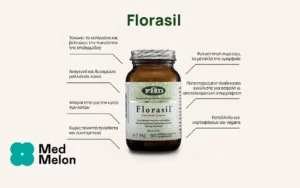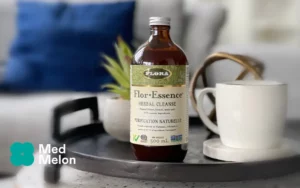Scientific Names of Pumpkin Seed: Cucurbita pepo L. [Fam. Cucurbitaceae]
Forms:
Ground, whole pumpkin seed; pumpkin seed press cake
Traditional Usage:
– Antinflammatory
– Antioxidant
– Bed-wetting (in children)
– Benign Prostate Hyperplasia
– Diuretic
– Dizziness
– Essential Fatty Acid (EFA) Deficiency
– Lowering LDL Cholesterol
– Roundworm Infection
– Tapeworm Infection
– Urinary System Conditions
– Vascular Disease
– Vermifuge (dewormer)
– Worms
Overview:
Pumpkin, Cucurbita pepo L. [Fam. Cucurbitaceae], has been cultivated as a food for at least the last 16,000 years, based on archaeological evidence in Mexico and North America. The seeds were used by many different aboriginal groups for expelling intestinal worms, for killing tapeworms and as a diuretic. Scientific studies have confirmed these indications and have documented the efficacy of the seeds for eliminating both tapeworms and roundworms. Pumpkin seeds are still widely used in Eritrea to treat tapeworm. The German Commission E recommends pumpkin seeds for treating urinary and prostate conditions, backed by many studies. The therapeutic use and safety of pumpkin seed was recently tested in a multicentric clinical trial. The study involved 2,245 patients suffering from benign prostate hyperplasia (BPH stage I&II). Patients received 1-2 capsules of a pumpkin seed extract per day for 12 weeks. The International Prostate Symptom Score questionnaire (American Urological Association (I-PSS)) was used to record urinary symptoms and a quality of life questionnaire (LQ Index) was used to record the treatment’s influence on quality of life. Results showed that during therapy, the I-PSS decreased by 41.4% and life quality improved by 46. 1%. More than 96% of the patients reported no undesired side effects. Researchers concluded that the extract facilitated an efficient improvement of BPH symptoms, especially in early stages. In a randomised, double-blind study with 53 patients over three months, the phytosterol preparation, Curbicin, obtained from pumpkin seeds and saw palmetto berries, was compared with a placebo in the treatment of symptoms caused by prostatic hyperplasia. Urinary flow, night time urination, residual urine, frequency of urination and a subjective assessment of the effect of treatment were all significantly improved in the treatment group without any untoward side effects. Some herbalists also recommend pumpkin seeds for treating dizziness and Parkinson’s disease.
Active Ingredients:
Pumpkin seeds contain (per 100g): Water, 7g; Protein, 24.5g; Total lipid, 45.8g; Carbohydrate, by difference, 17.8g; Total dietary fibre, 3.9g; Ash, 4.9g; Vitamin C, 2mg; Thiamin, 0.2mg; Riboflavin, 0.3mg; Niacin, 1.7mg; Pantothenic acid, 0.3mg; Vitamin B-6, 0.22mg; Folate, DFE, 58mcg; Vitamin A, 380 IU; Vitamin A, RE, 38mcg; Vitamin E (ATE), 1mg. Lipids: Fatty acids, total saturated, 8.7g; 16_0=5.6g; 18_0=2.8g; Fatty acids, total monounsaturated 14.2g; 16_1=0.1g; oleic acid or 18_1=14.1g; Fatty acids, total polyunsaturated=20.9g; linoleic acid or 18_2=20.7g; linolenic acid or 18_3=0.2g; Phytosterols (in free and bound forms) 1g/100g; Cholesterol 0g/100g. Minerals: Calcium, 43mg; Iron, 15mg; Magnesium, 535mg; Phosphorus, 1174mg; Potassium, 807mg; Sodium, 18mg; Zinc, 7.4mg; Copper, 1.4mg; Manganese, 3.0mg; selenium, 5.6mcg. Amino acids: Tryptophan 0.431g; Threonine 0.9g; Isoleucine, 1.3g; Leucine 2.1g; Lysine 1.8g; Methionine 0.6g; Cystine 0.3g; Phenylalanine 1.2g; Tyrosine, 1.0g; Valine 2.0g; Arginine 4.0g; Histidine 0.7g; Alanine 1.2g; Aspartic acid 2.5g; Glutamic acid 4.3g; Glycine 1.8g; Proline 1g; Serine 1.2. (National Agriculture Library’s USDA Nutrient Database for Standard Reference at http://www.nal.usda.gov). Variation in nutrient content exists between different cultivars and varieties of pumpkin. Pumpkin seeds grown for medicinal use in Eritrea contain (proximates): 35% lipids; 38% protein; 3mg/100g alpha-tocoferols and 37% carbohydrate. Pumpkin seeds also contain: squalene; chlorophyll pigments; 4-5% minerals; approximately 30% pectins; beta and alpha tocopherols; and carotenoids including lutein and beta-carotene.
Suggested Amount:
Unless otherwise prescribed: The German Commission E monographs recommend 10 grams per day of seed or other preparations taken correspondingly. The seed should be well chewed in order to maximize the absorption of active amino acids and phytosterols. Other authorities recommend taking between 10-20 grams of the seed daily, equivalent to 1-2 tablespoonfuls of seed. (One teaspoonful = ca. 5 grams; 1 tablespoonful = ca. 10 grams)
Drug Interactions:
None known
Contraindications:
None known
Side Effects:
None known
References:
Blumenthal M, Goldberg A, Brinckmann J 2000. Herbal Medicine: Expanded Commission E Monographs. Copyright American Botanical Council. Publ. by Integrative Medicine Communications, 1029 Chestnut Street, Newton, MA 02464. Pp. 322-325.
Carbin BE, Larsson B, Lindahl O. 1990. Treatment of benign prostatic hyperplasia with phytosterols. Br J Urol. 1990 Dec; 66(6): 639-41.
Chung WC, Ko BC. 1976. Treatment of Taenia saginata infection with mixture of areca nuts and pumpkin seeds. Zhonghua Min Guo Wei Sheng Wu Xue Za Zhi 1976 Jun; 9(1-2): 31-5.
Duke, J. 1997: The Green Pharmacy, The Ultimate Compendium of Natural Remedies from the World’s Foremost Authority on Healing and Herbs. pp. 212; 446, 448-449; 551. Rodale Press.
Friederich M, Theurer C, Schiebel-Schlosser G. 2000. [Prosta Fink Forte capsules in the treatment of benign prostatic hyperplasia. Multicentric surveillance study in 2245 patients]. Forsch Komplementarmed Klass Naturheilkd. 2000 Aug; 7(4): 200-4. German.




